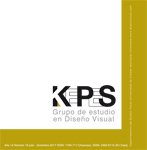Autores/as
Resumen
En este artículo argumentamos cómo la gamificación se puede aplicar a la educación para mejorar la motivación del estudiante. Para ello presentamos una experiencia que se desarrolló en un curso de diseño de juegos y en la que incluimos puntos de experiencia, niveles, insignias y retos. El estudio se realizó durante los años 2014 y 2015. Para evaluar cómo la gamificación impactó en la experiencia de aprendizaje, utilizamos una encuesta y entrevistas posteriores para los estudiantes. Los resultados muestran mejoras significativas en términos de atención a los materiales de referencia y en la proactividad. También sugieren que nuestro enfoque puede ayudar a los estudiantes a obtener mejores puntajes.
Palabras clave
Citas
Bannister, R., and Remenyi, D. (2009). Multitasking: The uncertain impact of technology on knowledge workers and managers. Electronic Journal Information Systems Evaluation, 12(1), 1-12.
Banks, J. (2013). Co-creating videogames. London, England: Bloomsbury Publishing.
Berkling, K. and Thomas, C. (2013). Gamification of a Software Engineering course and a detailed analysis of the factors that lead to it’s failure. Interactive Collaborative Learning, International Conference.
Brophy, J.E. (2013). Motivating students to learn. New York, USA: Routledge.
Brown, H. and Ciuffetelli, D.C. (2009). Foundational Methods: Understanding Teaching and Learning. New York, USA: Pearson Education.
Brusilovsky, P. (1999). Adaptive and Intelligent Technologies for Web-based Education. Intelligent Systems and Teleteaching Künstliche Intelligenz, 4, 19-25.
Contreras Espinosa, R.S. (2016). Elementos de juego y motivación: reflexiones en torno a una experiencia que utiliza gamificación en una asignatura de grado para game designers. En Contreras Espinosa, R.S. y Eguia J.L. (ed.), Gamificación en aulas universitarias (pp. 55-66). Bellaterra, España: Universitat Autònoma de Barcelona.
Csikszentmihalyi, M. (2008). Flow: The Psychology of Optimal Experience. New York, USA: Harper Perennial Modern Classics.
Deci, E. and Ryan, R. (1985). Intrinsic motivation and self-determination in human behavior. New York, USA: Plenum Press.
Deterding, S. (2013). Gameful Design for Learning. T+D, 67 (7), 60-63.
Deterding, S., Dixon, D., Khaled, R. and Nacke, L. (2011). Gamification: Toward a definition. Proceedings of CHIï 2011. Gamification workshop.
Dondlinger, M.J. (2007). Educational video game design: A review of the literature. Journal of Applied Educational Technology, 4, 21-31.
Gee, J.P. (2003). What Video Games Have to Teach Us about Learning and Literacy. New York, USA: Palgrave Macmillan.
Glover, I. (2013). Play as you learn: Gamification as a technique for motivating learners. En Herrington, J. (ed.), Proceedings of world Conference on educational Multimedia, Hypermedia and Telecommunications (1999-2008). Chesapeake, USA: AACE.
Hamari, J., Koivisto, J. and Sarsa, H. (2014). Does Gamification Work? ― A Literature Review of Empirical Studies on Gamification. 47th Hawaii Int. Conference on System Sciences. Hawaii, USA.
Hense, J. et al. (2014). Using gamification to enhance staff motivation in logistics. En Meijer, S.A. and Smeds, R. (eds.), Frontiers in gaming simulation (pp. 206-213). Stockholm, Sweden: Springer.
Kapp, K.M. (2012). The Gamification of Learning and Instruction: Game-based Methods and Strategies for Training and Education. San Francisco, USA: Pfeiffer.
Lee, J. and Hammer, J. (2011). Gamification in Education: What, How, Why Bother? Academic Exchange Quarterly, 15 (2), 146.
Landers, R.N. and Callan, R.C. (2011). Casual social games as serious games: The psychology of gamification in undergraduate education and employee training. En Ma, M., Oikonomou, A. and Jain, L.C. (ed.), Serious games and edutainment applications (pp. 399-423). London, England: Springer-Verlag.
Lee, J.J. and Hoadley, C.M. (2007). Leveraging identity to make learning fun: Possible selves and experiential learning in massively multiplayer online games (MMOGs). Innovate, 3 (6).
Lei, S. (2010). Intrinsic and extrinsic motivation: Evaluating benefits and drawbacks from college instructors’ perspectives. Journal of Instructional Psychology, 37 (2), 153-160.
McDermott, A.F., Bavelier, D. and Green, C.S. (2014). Memory abilities in action video game players. Computers in Human Behavior, 34, 69-78.
McGonigal, J. (2011). Reality Is Broken: Why Games Make Us Better and How They Can Change the World. New York, USA: Penguin Group.
Morrison, B. and DiSalvo, B. (2014). Khan academy gamifies computer science. SIGCSE ‘14: the 45th ACM technical symposium on Computer Science education.
Muntean, C.I. (2011). Raising engagement in e-learning through gamification. Proceedings of the 6th International Conference on virtual learning.
Oravec, J. (2013). Multitasking in online teaching and learning: Design of environments and facilitation of social expectations. Proceedings of the 30th Annual Conference on Distance Teaching & Learning.
Ryan, R.M. (1995). Psychological needs and the facilitation of integrative processes. Journal of Personality, 63 (3), 397-427.
Sailer, M. et al. (2017). How gamification motivates: An experimental study of the effects of specific game design elements on psychological need satisfaction. Computers in Human Behavior, 69, 371-380.
Shindler, J. (2007). Transformative Classroom Management. Boston, USA: Pearson Allyn & Bacon Press.
Schott, G. and Yeatman, B. (2011). Participatory culture and Half-Life 2 machinima. En Lowood, H. and Nitsche, M. (eds.), The machinima reader (pp. 301-313). Massachusetts, USA: MIT Press.
Schunk, D.H., Pintrich, P.R. and Meece, J.L. (2010). Motivation in education: Theory, research, and applications. New York, USA: Pearson.
Stevens, D.D. and Levi, A.J. (2005). Introduction to rubrics. Sterling, USA: Stylus.
Urhahne, D. (2008). Sieben Arten der Lernmotivation. Psychologische Rundschau, 59 (3), 150-166.
Waddington, D.I. (2013). A parallel world for the World Bank: A case study of Urgent: Evoke, an educational alternate reality game. RITPU: Revue Internationale des Technologies en Pédagogie Universitaire, 10, 42-56.
Weinert, F.E. (2001). Concept of Competence: A conceptual clarification. En Rychen, D. and Hersh, L. (eds.), Defining and selecting key competences (pp. 45-66). Kirkland, USA: Hogrefe & Huber Publishers.
Werbach, K. and Hunter, D. (2012). For the Win: How Game Thinking Can Revolutionize Your Business. Wharton, USA: Wharton Digital Press.
Wing-yi Cheng, R., Lam, S.-F. and Chung-yan Chan, J. (2008). When Alta Achievers and Baja Achievers Work in the Same Group: The Roles of Group Heterogeneity and Processes in Project-based Learning. British Journal of Educational Psychology, 78, 205-221.
Zicherman, G. and Cummingham, C. (2011). Gamification by Design: Implementing game mechanics in web and mobile apps. Sebastopol, Russia: O’Reilly Media.

 pdf
pdf
 FLIP
FLIP























